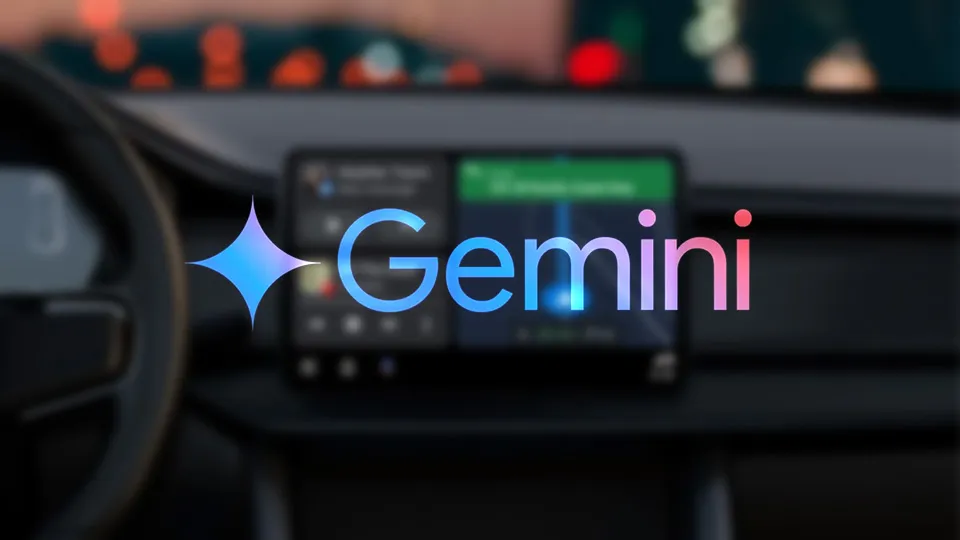
I’m old, which means I get to see the same mistakes made by the same companies over and over again.I’d hoped that AI would fix this, but that clearly isn’t the case at the moment because Google has once again previewed a product before it was ready and is getting some bad initial reviews.
Remember Google Glass? That product was released before it was ready, and due to the bad press it received, head-mounted displays were delayed for around a decade.
Well, Google has started previewing Gemini for Android Auto before it is ready, and users aren’t becoming fans. This week, let’s talk about why Gemini for your car could be a good thing if Google doesn’t kill it prematurely.We’ll close with my Product of the Week: a really cool, smart, vehicle-mounted drone system that will be available across all BYD models.
Premature Product Launches and Marketing Failures
One of the advantages of having a strong marketing organization is that it can manage bad initial impressions and help prevent an unfinished product from ruining its future potential.
Steve Jobs was a master at this. While he was alive, Apple out-marketed almost every other company on the planet. The result was that Apple was able to bring to market an iPhone that initially sucked but survived until it didn’t. Then, it transformed the market.Google isn’t a marketing company. We saw this in spades with Google Glass, another product released before it was ready, which then died a painful death. It’s hard to overcome bad first impressions; products introduced before they are ready generally leave bad first impressions.
We can see this with the initial coverage for Gemini in Android Auto. While I don’t think the product is cooked yet, I also don’t think it is as bad as the reviewers seem to think it is, and I believe it will get a ton better.
AI’s Role in Modern Vehicles
I recall back in the 1970s when car makers decided buyers wanted a voice rather than an idiot light to tell them what was going on. You’d get verbal scripted messages like “your door is ajar” or “fasten your seatbelts.” That got really annoying after a short time and killed this feature.
The idea of talking to your car wasn’t bad, but having it verbally alert you to what a light indicator would have done faster, better, and cheaper didn’t seem like a step in the right direction.
However, AI in your car could be far more interesting because you can converse with AIs. Rather than the pain of voice commands that came after scripted voice alerts (with voice commands, you have to learn specific commands), AIs like Gemini use natural language and can converse with you.
AI can do many things, like identifying a place along your route with food you’d enjoy, alerting you that you are getting sleepy, and automatically taking you to a safe, affordable hotel. It could provide deeper analytics than idiot lights do.
For instance, the meaning of a check engine light can indicate anything from a minor issue to a critical failure, depending on the affected system. So rather than a general alert, the AI could point to the component that had failed, tell you the criticality of the failure, and then get you the appropriate help, whether that’s a tow truck or factory support.
The criticality of the failure would be a huge benefit. If interference engines have a problem with the timing chain, they can self-destruct if the engine isn’t turned off immediately, and a coolant leak can result in a blown head gasket and the need for a new engine. Having AI prevent any of that would be well worth the cost of admission.
AI as a Co-Pilot for Drivers
I used to drive long distances solo a lot when I was younger. Staying awake on a long drive, particularly at night when there is little or no traffic, is problematic. Having someone to talk to helps, but a passenger can fall asleep, too, which isn’t always ideal on a long drive.
Gemini is a conversational AI, which means you should be able to talk to it and have it hold a conversation with you.
Exploring new ideas, chatting about things around you that you might otherwise miss, or just discussing a subject that interests you could make the drive go by faster and make it less likely you’ll wake up in a hospital or worse.
Moreover, this conversational feature could be particularly useful for long-haul truck drivers.
Wrapping Up: Will Gemini in Android Auto Succeed?
Assuming it was well-trained, generative AI in a vehicle would be a great addition. It should provide more complete answers to questions, more effectively guide you to gas, food, or safety, tell you not only what is wrong with your car but what you should do to limit the damage, and keep you entertained on long trips where you are very likely to fall asleep.
But the AI has to be properly trained, performant, and not annoying. Right now, Gemini in Android Auto is none of those things. Thus, it shouldn’t be seen in the light of day because it is creating negative impressions that could eventually kill this effort.
I hate to see Android Auto AI go the way of Google Glass, but it doesn’t look like Google has yet learned from past mistakes. Let’s hope Google corrects its path, as I’d really like a working AI to chat with while I drive.



